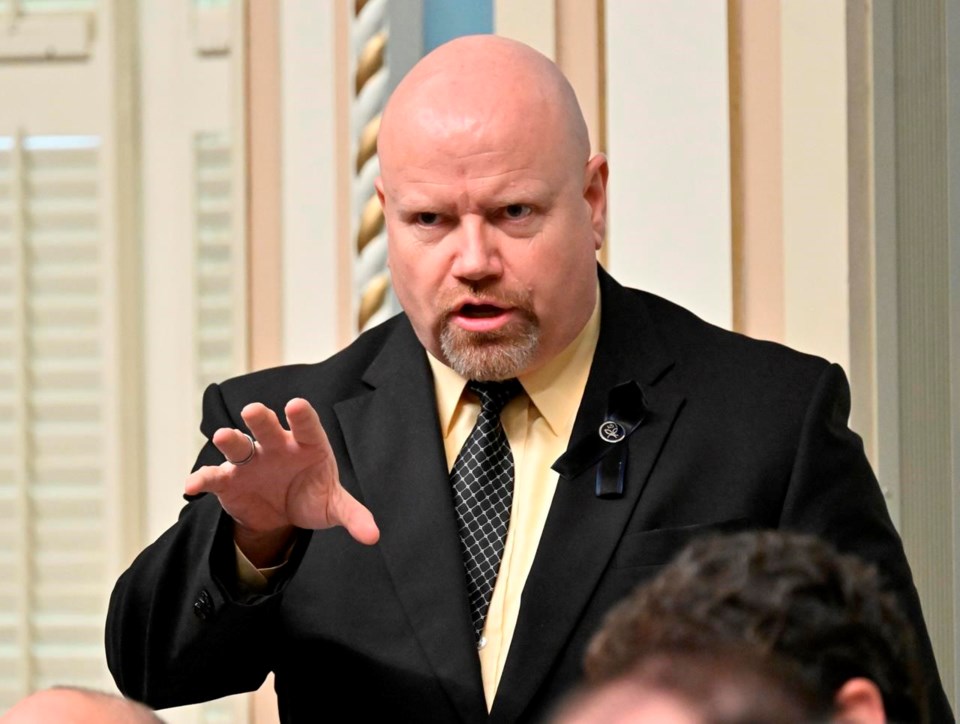Quebec's College of Physicians says the government is taking a "paternalistic and colonialist" approach with new legislation aimed at improving the treatment of Indigenous people in the health network.
The professional order overseeing the province's doctors was the first of several groups and individuals scheduled to testify at two days of consultations on a bill aimed at instituting a "cultural safety approach" toward Indigenous patients. The proposed law has drawn indignation from some First Nations groups because of a lack of consultation in its drafting.
The college wrote in a written brief presented to a legislature committee that it will be hard for the government to ensure care is provided with respect for a patient's cultural identity if it does not first acknowledge the systemic racism in the health network.
The college recommends a broadening of the scope of the cultural safety bill to include other vulnerable groups, and it says Indigenous groups must be given a role in shaping the legislation.
Dr. Mauril Gaudreault, the president of the college, said that unlike the government, the college worked with First Nations and Inuit in drafting its brief. That put Indigenous Affairs Minister Ian Lafrenière on the defensive, who said he had met some 13 Indigenous groups before tabling the legislation. Among the groups were friendship centres, women's groups and the Cree Board of Health and Social Services of James Bay, he said.
Gaudreault also called out the Coalition Avenir Québec government's refusal to recognize the existence of systemic racism. He said systemic racism is widely recognized by civil society, including his own organization, the Quebec Order of Nurses and the Quebec Human Rights Commission.
“We are uncomfortable with the situation, but you seem uncomfortable with the word,” said Gaudreault. “I think we must first recognize this systemic racism in the health network.”
Quebec's refusal to recognize systemic racism has prevented the government from adopting Joyce's Principle, a series of measures proposed by the Atikamekw community to ensure equitable access to health care after an Atikamekw woman died in a Joliette, Que., hospital in 2020.
In his opening remarks Tuesday, Lafrenière honoured the memory of Joyce Echaquan, the mother of seven who filmed health-care staff making insults and derogatory comments towards her shortly before her death. He said her tragic death "highlighted the importance of taking action.”
The bill contains just five articles and states that every institution in the health network must adopt a cultural safety approach – one that takes cultural and historical realities into account in all interactions with Indigenous people.
However parts of the bill are non-binding, saying health institutions should take steps "where possible" to hire Indigenous staff and train staff on Indigenous cultural and historical realities.
The chief of the Assembly of First Nations Quebec-Labrador, Ghislain Picard, is boycotting the committee's work and considers the bill to be “disrespectful of the rights of First Nations," noting the lack of consultation in drafting the bill.
Picard wrote in a letter that the government's definition of cultural safety is too narrow and doesn't look beyond the individual experience at a larger social issue that includes "power imbalances" and the persistent effects of colonialism.
Marjolaine Siouï of the First Nations of Quebec and Labrador Health and Social Services Commission said ahead of her testimony that cultural safety policy needs to be developed in conjunction with the First Nations and Inuit groups.
“For us, the principle of consultation means returning to our populations so that they can tell us what they expect from cultural safety,” said Siouï. "It’s not work that's done quickly, it's work that requires time, reflection and it's only then that we will build on a solid foundation."
But she said it was important to take part in the hearings, since the bill will have an impact on Indigenous Peoples and their concerns need to be heard.
This report by The Canadian Press was first published Sept. 12, 2023.
— By Ugo Giguère in Montreal.
Canadian Press health coverage receives support through a partnership with the Canadian Medical Association. CP is solely responsible for this content.
The Canadian Press

